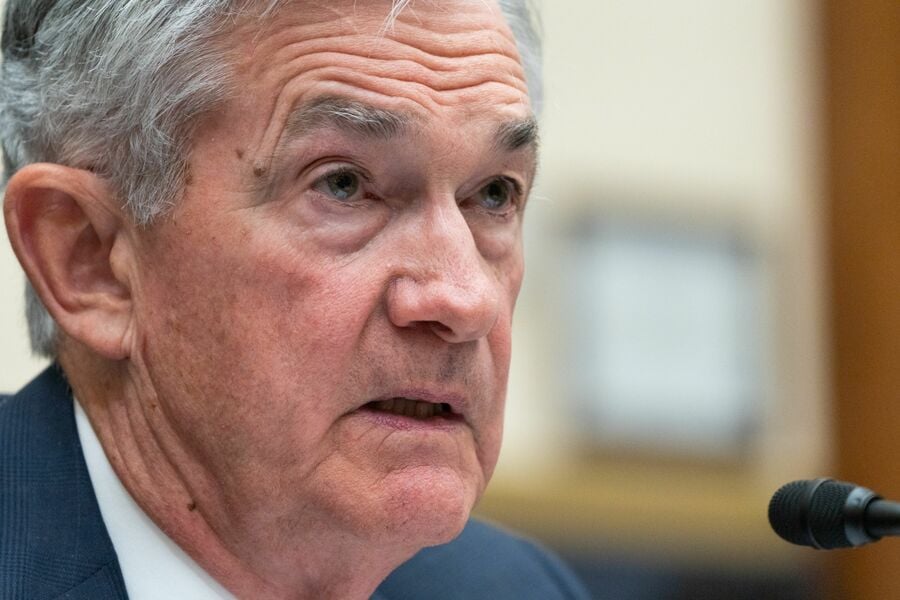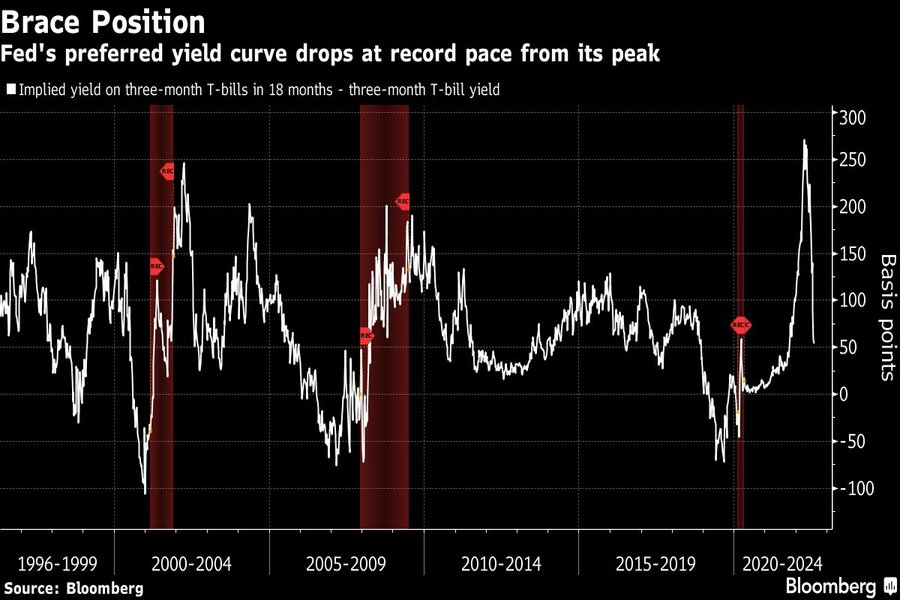

The Federal Reserve’s interest-rate hikes are wearing out their welcome in bond markets, with a measure of the yield curve that Chair Jerome Powell has highlighted as a recession indicator sending out a warning message.
The difference between rates on where three-month bills are now and where they will be in 18 months has tumbled about 95 basis points in July, the biggest monthly decline in data starting in 1996. A vast swathe of the U.S. yield curve inverted in recent weeks as recession fears spurred investors to pile into longer maturities.

The conundrum for the Fed is that readings on inflation drivers — such as wages — are elevated enough to sustain pressure on policy makers to stay hawkish, even as measures of the broader economy such as last week’s business-activity data signal the U.S. is heading for a severe economic slowdown.
“Rates markets pricing in 2023 Fed rate cuts imply the market is expecting the Fed to pivot on rising recession risks,” said Prashant Newnaha, a strategist at TD Securities in Singapore. However, with official inflation data yet to confirm a peak, the Fed is likely to maintain its war on inflation despite signs the U.S. and European economies are slowing, and this should see curves flatten further, he said.
Yields on U.S. two-year notes have climbed above those on five-year securities by the most since 2007, while the two-to-10-year curve is most the most inverted since 2000 at around minus 24 basis points. Powell downplayed such inversions back in March by arguing the three-month to 18-month forward curve was the one that really mattered, and it was steepening.
That spread peaked soon after his comments, and is now dropping fast enough to fall below zero at some stage in the next month.

While industry statistics pointing to a succession crisis can cause alarm, advisor-owners should be free to consider a middle path between staying solo and catching the surging wave of M&A.

New joint research by T. Rowe Price, MIT, and Stanford University finds more diverse asset allocations among older participants.

With its asset pipeline bursting past $13 billion, Farther is looking to build more momentum with three new managing directors.

A Department of Labor proposal to scrap a regulatory provision under ERISA could create uncertainty for fiduciaries, the trade association argues.

"We continue to feel confident about our ability to capture 90%," LPL CEO Rich Steinmeier told analysts during the firm's 2nd quarter earnings call.
Orion's Tom Wilson on delivering coordinated, high-touch service in a world where returns alone no longer set you apart.
Barely a decade old, registered index-linked annuities have quickly surged in popularity, thanks to their unique blend of protection and growth potential—an appealing option for investors looking to chart a steadier course through today's choppy market waters, says Myles Lambert, Brighthouse Financial.
